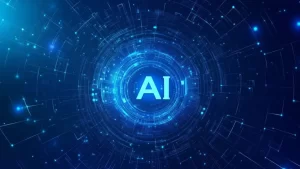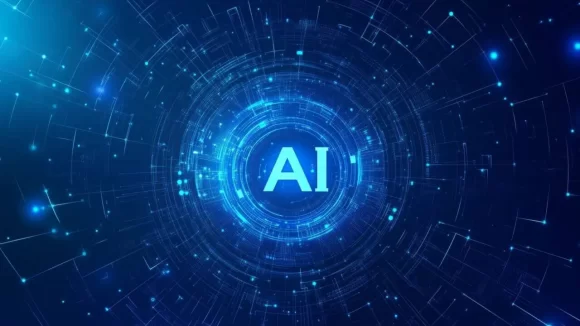Agenda Digitale: Artificial Intelligence – What is the Impact on the Three Pillars of Our Society


Source:
- Agenda Digitale, published on March 21st, 2025
By Pierluigi Casale (Associate Professor and Area Chair in AI of OPIT, Open Institute of Technology)
AI is revolutionizing institutions and education, but also our daily lives, improving decision-making and energy efficiency, city management, and personalizing learning. Current choices will determine the future of this technology, which must remain a support for humans and not an uncontrolled substitute.
Artificial Intelligence (AI) is now at the center of a global debate that touches on regulatory, ethical, geopolitical and applicative aspects. Its evolution, from an experimental technology to an essential tool for analysis and automation, has led to the need for a clear regulatory framework and responsible use.
In my role as an official of the European Parliament, I work on the implementation and oversight of AI systems within the European institutions, contributing to the regulation and management of the challenges that this technology brings. It is important to underline that this article represents only my personal opinion and in no way represents an official position of the European Parliament.
Europe and the regulation of artificial intelligence
Europe is tackling the challenge of regulating AI with the AI Act Regulation, the first comprehensive framework for this instrument. The aim is to find a balance between innovation and the protection of fundamental rights, preventing big tech companies from shaping legislation to their advantage.
Artificial intelligence is nothing more than advanced software and, as such, must be carefully regulated. If used correctly, it can represent an extraordinary opportunity to improve the efficiency and accessibility of information, but it is essential to avoid abuse and market distortions. Something is moving. The AI Act came into force on August 1, 2024. Starting from February 2, 2025, new restrictions have been introduced on some AI practices deemed dangerous , while from August 2, 2025, the full application of governance rules and obligations for general AI models will begin, including verification processes to ensure compliance of AI systems already in use in companies and institutions.
The Ethical Challenges and Risks of AI: Bias, Privacy and Autonomy
Yet there are still several aspects to be fixed. One of the most evident problems of AI concerns algorithmic bias. Facial recognition systems, for example, have returned discriminatory content towards ethnic groups not adequately represented in the training data. This is a clear signal of the need for more inclusive and transparent models.
But there are other open problems: regarding privacy, for example, some AI models (such as DeepSeek) collect sensitive data, including the way we type on the keyboard; the issue of the spread of fake news or autonomy of choice is also always current, just think of the risks that delegating critical decisions to AI in the medical, legal or financial fields can entail. Regulation must ensure that AI remains a support tool and not an uncontrolled substitute for human evaluation.
This is the starting point. If established, shared and guaranteed, then AI can truly be the fulcrum around which the industrial revolution of this century revolves. In some areas it is already like this.
The impact of AI on three pillars of our society : institutions, education and daily life
Once this perimeter is defined, artificial intelligence can have a revolutionary impact on three fundamental pillars of our society: institutions, education and the quality of daily life.
AI in Institutions: Opportunities and Limitations
In institutions, AI can improve the efficiency of decision-making processes, data management and infrastructure security, contributing to more transparent and responsive governance; in education systems, it allows for personalizing learning, supporting the development of digital skills and reducing inequalities in access to knowledge; while, in terms of sustainability and urban management, it offers solutions to optimize energy consumption, improve mobility and promote the creation of more resilient and inclusive smart cities. The common thread that unites these areas is the need for synergic and conscious innovation, capable of integrating AI and putting it at the service of man, ensuring that technological progress is not an end in itself, but oriented towards collective well-being and sustainable development.
AI has been introduced in various institutions, including public ones, to support translators, improving productivity and accuracy. Other very advanced systems allow extracting key information from complex legislative texts. AI is used to protect IT infrastructure and manage data. However, there are significant limitations. For example, a large number of these technologies are trained only on majority languages (English, French, German), creating problems for languages whose presence in the digital world is minority, such as Lithuanian or Maltese. Furthermore, with the entry into force of new regulations, it will be essential to verify that all AI systems used in institutions comply with the criteria of transparency, fairness and security.
AI in Education: Personalization and Democratization of Learning
While AI is revolutionizing institutional and legislative dynamics, its impact is equally significant in the field of education, where it offers new opportunities to personalize learning and improve teaching effectiveness. AI is transforming the way we learn and teach. At OPIT, the university where I teach, we use generative AI to personalize training courses, adapting content to the learning style of each student, improve access to information, with tools that explain code and transform programming languages, support students in checking code, identifying errors and suggesting improvements. AI can democratize education, making it more flexible and effective, without replacing the teacher but acting as a Copilot, an intelligent assistant that guides the student on his path.
AI for sustainability and quality of urban life
In addition to transforming institutions and education systems, AI is also proving its value in areas that are crucial to sustainability and quality of life , such as energy efficiency and city management. For example, DeepMind developed an AI system that significantly improved the energy efficiency of Google’s data centres. This system reduced the energy used for cooling by 40%, leading to an overall improvement of 15% in energy efficiency in some data centres. AI now directly controls cooling systems at some sites, again under human supervision, demonstrating the potential of AI to reduce energy consumption in energy-intensive sectors. Or, with products like TomTom’s Traffic Index, it helps redistribute traffic in cities, reducing congestion.
According to one study, using real-time data for traffic management can reduce commute times in cities by 15-20%. In addition, AI could revolutionize urban resource management, although the full realization of smart cities is still far away. The main obstacle remains the lack of adequate infrastructure in public institutions, which often lack the necessary computational resources.
Have questions?
Visit our FAQ page or get in touch with us!
Write us at +39 335 576 0263
Get in touch at hello@opit.com
Talk to one of our Study Advisors
We are international
We can speak in:




